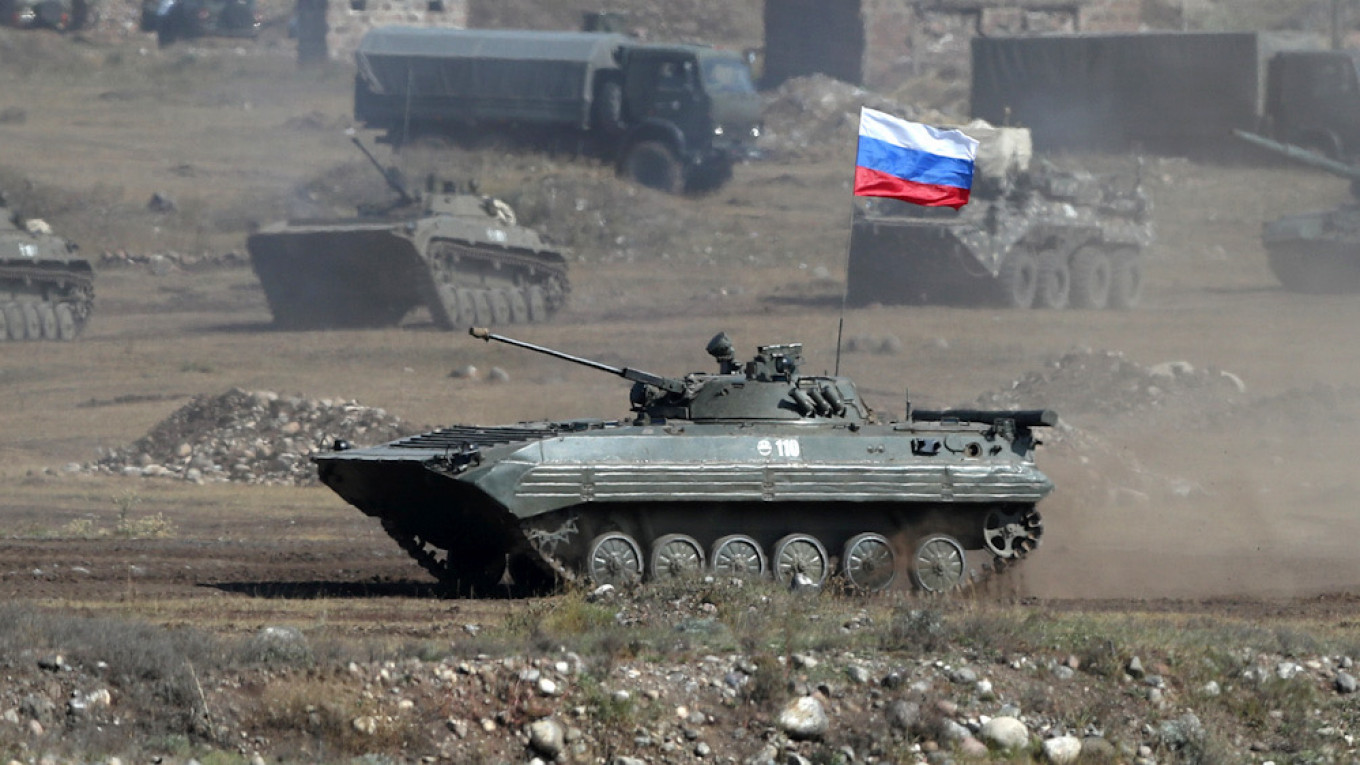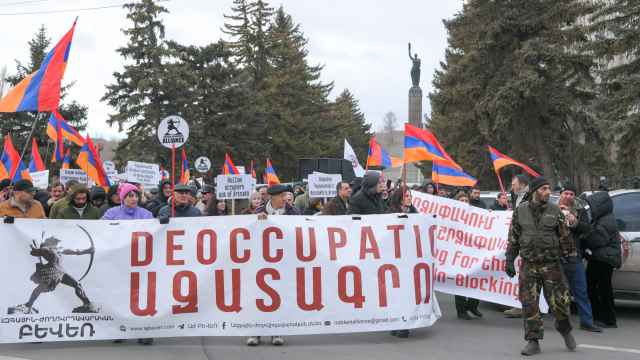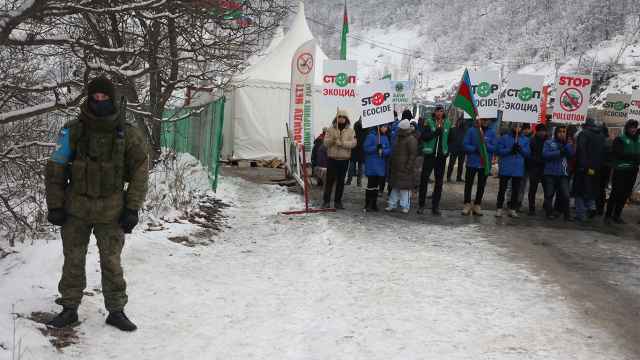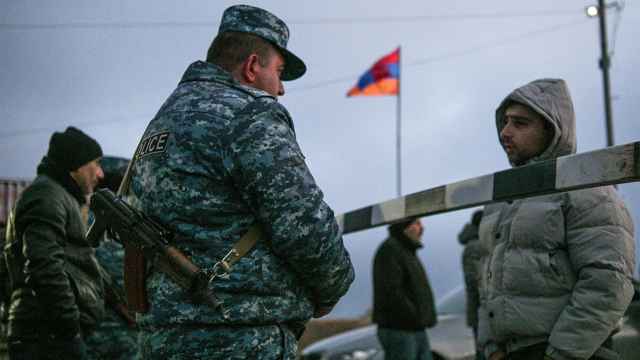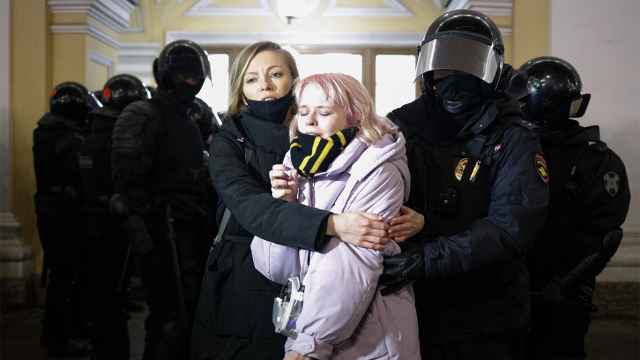Armenia said Wednesday it will seek to expand the presence of Russian troops on its soil in a move that would further strengthen Moscow's role as the tiny Caucasus country's security guarantor.
Russia helped broker a peace deal between Armenia and its arch-foe Azerbaijan in November which ended six weeks of fighting over the disputed Nagorno-Karabakh region that claimed the lives of some 6,000 people.
Under the deal, Armenia ceded swathes of territories to Azerbaijan in the disputed enclave as well as surrounding areas it had controlled since a war in the 1990s, as well as allowing the deployment of Russian peacekeepers in the area.
Prime Minister Nikol Pashinyan said Wednesday that his government was in "talks with Russian partners on setting up a foothold of Russia's 102nd military base" in Armenia's Syunik region that borders Azerbaijan and Iran.
"The Armenian-Russian military alliance is pivotal for ensuring Armenia's security," he said in parliament, stressing the "critical importance" of the "joint Russian-Armenian military alignment and of the joint air defense system."
"We are discussing the possibility of expanding the capabilities of Russia's military base."
Armenia is part of the Russian-led Collective Security Treaty Organization, a military alliance that also includes Belarus and three ex-Soviet republics in Central Asia.
Under the treaty, Russia has an obligation to defend Armenia in the event that the small landlocked nation comes under attack from a foreign power.
Armenia hosts a 3,000-troops-strong Russian military base in its second-largest city of Gyumri and Russian border guards are deployed along Armenia's borders with Azerbaijan, Turkey and Iran.
Armenia and Turkey have been at loggerheads since Armenia gained independence following the Soviet Union's dissolution in 1991 and their shared border has remained closed ever since.
Turkey's backing of Turkic-speaking Azerbaijan in its conflict with Armenia over Karabakh — and Armenia's bid to get World War I-era massacres of ethnic Armenians in the Ottoman Empire recognized as genocide — have soured relations between the two countries.
A Message from The Moscow Times:
Dear readers,
We are facing unprecedented challenges. Russia's Prosecutor General's Office has designated The Moscow Times as an "undesirable" organization, criminalizing our work and putting our staff at risk of prosecution. This follows our earlier unjust labeling as a "foreign agent."
These actions are direct attempts to silence independent journalism in Russia. The authorities claim our work "discredits the decisions of the Russian leadership." We see things differently: we strive to provide accurate, unbiased reporting on Russia.
We, the journalists of The Moscow Times, refuse to be silenced. But to continue our work, we need your help.
Your support, no matter how small, makes a world of difference. If you can, please support us monthly starting from just $2. It's quick to set up, and every contribution makes a significant impact.
By supporting The Moscow Times, you're defending open, independent journalism in the face of repression. Thank you for standing with us.
Remind me later.


